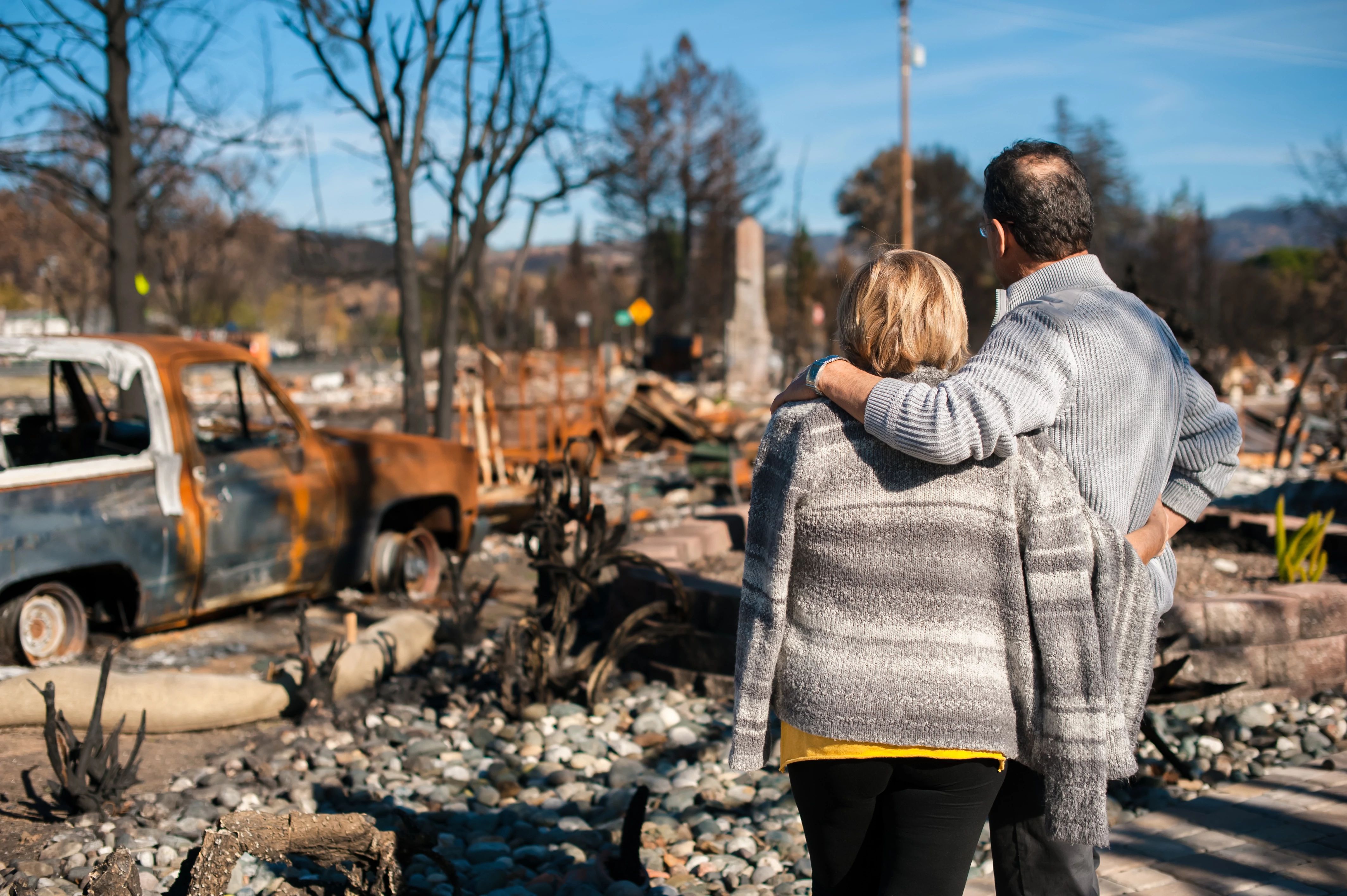AARP Hearing Center

Natural disasters can leave communities vulnerable- not just to damage, but also to scams. Fraudsters take advantage of the chaos and use deceptive tactics to steal personal information and money. This guide will walk you through common disaster scams, warning signs, and steps to take if you suspect fraud.
Download our tip sheet with important phone numbers, scam prevention tips and worksheets and more.
COMMON DISASTER SCAMS: HOW TO SPOT AND AVOID THEM
Contractor Scams
When natural disasters occur, fake contractor scams become more prevalent as they take advantage of homeowners’ urgency. These scams show up in one of two ways: contractors that show up and use high-pressure sales tactics to push you to pay upfront for their services or contractors will claim that your house is damaged when there is no damage.
Avoid Contractor Scams
Never give a deposit more than a third of the total cost; ask and review referrals; check a contractor’s license with the California Office of Small Business Advocate; review the Better Business Bureau for any complaints; and get at least three bids for your project.
Government, Utility and Insurance Impostors
Scammers will often pose as government officials (like FEMA representatives), utility workers or insurance representatives to try to take advantage of those who have been affected by a disaster. They may call, email, or even show up in person, claiming you need to pay fees to restore services, speed up insurance claims, or qualify for insurance relief.
Avoid Imposter Scams
Stay safe by verifying your sources. Contact the agency directly using official contact information. Remember, government agencies and legitimate companies will never demand immediate payments or sensitive details over the phone. For more information visit, How to Avoid United States Government Grant Scams.
Phony Real Estate and Rental Scams
Real estate ‘professionals’ will either make low-ball offers to buy your property or make a deal that sounds too good to be true. For rental scams, criminals will advertise a place for rent that either doesn’t exist or is owned by someone else. Red flags include below-market rent; photos with unrelated watermarks; demand for payment to view the property; sense of urgency and poor communication.
Avoid Real Estate Scams
Research the property. The Federal Trade Commission recommends searching for the rental’s address along with the name of the rental company or property owner. If a different name comes up in your search, it could be a scam. Never pay a deposit before leasing and always see the property in person.
Fake GoFundMe Fundraisers
Fake GoFundMe campaigns are becoming more common. These scams often feature emotional appeals with stolen photos or stories that seem convincing at first.
Avoid Phony GoFundMe Fundraisers
To protect yourself and your hard-earned money, it is important to verify the campaign's legitimacy. Visit GoFundMe for a list of verified fundraising campaigns.
Other Charity Scams
Scammers may impersonate well-known charities, create fake websites, or reach out through phone calls, emails, or social media.
Avoid Charity Scams
To protect yourself and others, take a moment to research before donating. Visit charitynavigator.org, which has a list of verified charities. For more information visit, Charity Scams - How to Tell If a Charity Is a Fraud.
REPORTING FRAUD
If you or a loved one suspect that you have been targeted or a victim of fraud, there are several actions you can take to help protect yourself and others.
- The Department of Justice partners with local law enforcement to create the National Center for Disaster Fraud. You can report fraud online or call 866-720-5721.
- Contact FEMA Investigations and Fraud Divisions at 866-223-0814 and visit Disaster Fraud | FEMA.gov for more information.
- Contact the Federal Trade Commission by making an online report or call 877-382-4357.
- Contact the National Insurance Crime Bureau by making an online report or call 800-835-6422.
- Report fraud and get tips from the AARP Fraud Watch Network Helpline at 877-908-3360.
MORE FROM AARP
AARP California is here to help you stay safe and recover after a natural disaster. Stay informed with expert advice and up-to-date information on disaster relief programs.































































